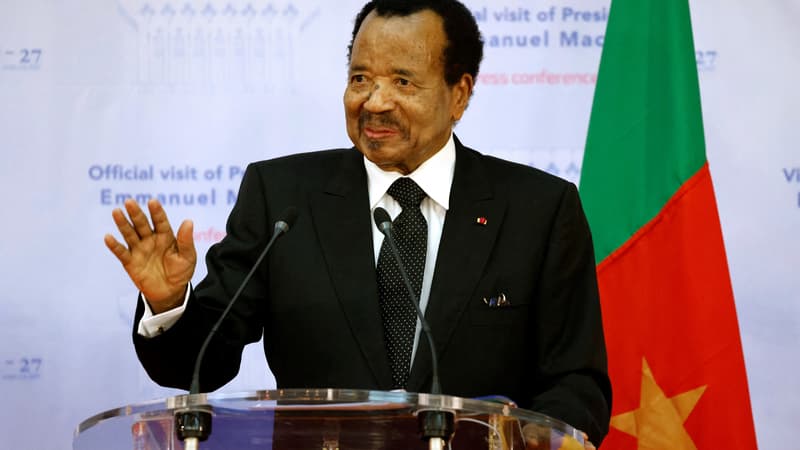Paul Biya, the oldest sitting head of state in the world, is the big favorite in the presidential elections on Sunday, October 12 in Cameroon, where he has reigned for 43 years. In front of 11 candidates, including his former minister Issa Tchiroma Bakary, who arouses a certain unexpected enthusiasm.
The eight million Cameroonians called to vote until 6:00 p.m. (19:00 French time) for this single-round vote they have always lived for the most part under the reign of Biya, in power since 1982, and who has always won with a score of over 70% in the last 20 years.
“We must not be naive, we know that the government system has many means to obtain results that benefit it,” Stéphane Akoa, a Cameroonian political scientist, explains to AFP.
He points out, however, that the campaign has been “much livelier” than usual in recent days and that “therefore, this election may surprise us more,” in a country where 40% of the inhabitants lived below the poverty line in 2024, according to the World Bank.
The Constitutional Council has until October 26 to proclaim the final results. In 2018, they were announced 15 days after the election.
Paul Biya, 92, remained very discreet as always during the election campaign. He finally appeared in public on Tuesday for the first time since May, visibly in good shape, holding, as in 2018, a campaign rally in Maroua, in the far northern region, strategic with its more than 1.2 million voters, the second largest reserve of votes in the country.
Issa Tchiroma Bakary, 79-year-old main rival
His 11 rivals have increased their public appearances, vowing to turn the page on the long, iron-fisted reign of Cameroon’s second president since independence from France in 1960.
On Thursday afternoon, his main rival, Issa Tchiroma Bakary, 79, who left the government in June and joined the opposition after 20 years in the presidency, met in Maroua in turn.
In this region where he comes from, he seemed to generate unprecedented popular enthusiasm, greeted in the streets by thousands of followers brandishing signs praising “Tchiroma the Savior.” A stark contrast to Paul Biya’s meeting, held before a small audience of a few hundred people, compared to the 25,000 announced by his entourage.
Paul Biya’s main opponent, Maurice Kamto, second in the 2018 presidential election, saw his candidacy rejected by the Constitutional Council. Several NGOs, such as Human Rights Watch (HRW), then expressed concern about the “credibility of the electoral process.”
“Protect the vote”
Some Cameroonians declare themselves disillusioned with the perpetuation of the “Biya system”, while unemployment reaches 35% in large cities.
But in this country where half of the population is under 20 years old, “many young people want to vote and have gone to get their voter card,” notes political scientist Stéphane Akoa. He considers it “a positive sign of change, but perhaps not strong enough to bring young people to the streets, as we saw in Madagascar, Tunisia and other places.”
Cameroonians complain about the high cost of living, lack of clean water, healthcare and quality education, but these frustrations remain confined to social media.
The Ministry of Territorial Administration authorized 55,000 local and international election observers, including the African Union. Several platforms have planned to compile the results independently, to “protect the vote”, which has sparked criticism from the Government, which denounces attempts to “manipulate public opinion” and “proclaim truncated results”.
The vote will take place in the shadow of the deadly conflict pitting separatist groups against government forces in the predominantly English-speaking northwest and southwest regions. During the previous elections in 2018, abstention was particularly high in these regions.
Source: BFM TV


